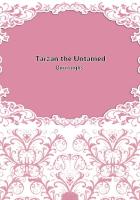The controversy in the Spanish Netherlands was only the prelude to a much more serious conflict in Spain itself. In 1588 the well-known Jesuit, Luis de Molina (1535-1600) published at Lisbon his celebrated work, /Concordia liberi arbitrii cum gratiae donis etc./ with the approbation of the Dominican, Bartholomew Ferreira, and the permission of the Inquisition. Hardly had the work left the printing press than it was attacked warmly by Domingo Banez (1528-1604), the friend and spiritual director of St. Teresa, and one of the ablest Dominicans of his time. He had been engaged already in a controversy with the Jesuit, Montemaior, on the same subject of Grace, but the publication of Molina's book added new fuel to the flame, and in a short time the dispute assumed such serious proportions that bishops, theologians, universities, students, and even the leading officials of the state, were obliged to take sides. The Dominicans supported Banez, while the Jesuits with some few exceptions rallied to the side of Molina. The latter's book was denounced to the Inquisition, but as a counterblast to this Banez also was accused of very serious errors. If Molina was blamed for being a Semi-Pelagian, Banez was charged with having steered too closely to Calvinism. In the hope of restoring peace to the Church in Spain Clement VIII. reserved the decision of the case to his own tribunal (1596).
To get a grasp of the meaning of the controversy, it should be borne in mind that in all theories concerning the operation of Grace three points must be safeguarded by all Catholic theologians, namely, man's dependence upon God as the First Cause of all his actions natural as well as supernatural, human liberty, and God's omniscience or foreknowledge of man's conduct. Following in the footsteps of St.
Thomas, the Dominicans maintained that when God wishes man to perform a good act He not only gives assistance, but He actually moves or predetermines the will so that it must infallibly act. In this way the entire act comes from God as the First Cause, and at the same time it is the free act of the creature, because the human will though moved and predetermined by God acts according to its own nature, that is to say, it acts freely. In His eternal decrees by which God ordained to give this premotion or predetermination He sees infallibly the actions and conduct of men, and acting on this knowledge He predestines the just to glory /ante praevisa merita/. According to this system, therefore, the efficaciousness of Grace comes from the Grace itself, and is not dependent upon the co-operation of the human will.
Against this Molina maintained that the human faculties having been elevated by what might be called prevenient Grace, so as to make them capable of producing a supernatural act, the act itself is performed by the will co-operating with the impulse given by God. Man is, therefore, free, and at the same time dependent upon God in the performance of every good act. He is free, because the human will may or may not co-operate with the divine assistance, and he is dependent upon God, because it is only by being elevated by prevenient Grace freely given by God that the human will is capable of co-operating in the production of a supernatural act. It follows, too, that the efficaciousness of Grace arises not from the Grace itself but from the free co-operation of the will, and that a Grace in itself truly sufficient might not be efficacious through the failure of the will to co-operate with it. The omniscience of God is safeguarded, because, according to Molina, God sees infallibly man's conduct by means of the /scientia media/ or knowledge of future conditional events (so called because it stands midway between the knowledge of possibles and the knowledge of actuals). That is to say He sees infallibly what man would do freely in all possible circumstances were he given this or that particular Grace, and acting upon this knowledge He predestines the just to glory /post praevisa merita/. The main difficulty urged against Molina was, that by conceding too much to human liberty he was but renewing in another form the errors of Pelagius; while the principal objection brought forward against the Dominicans was, that by conceding too much to Grace they were destroying human liberty, and approaching too closely to Calvin's teaching on Predestination.
Needless to say, however much they differed on the points, both the followers of St. Thomas and the friends of Molina were at one in repudiating the doctrines of Calvin and Pelagius.













